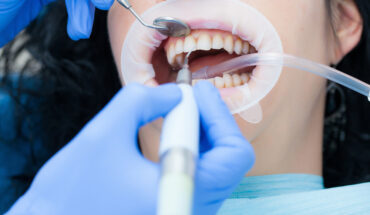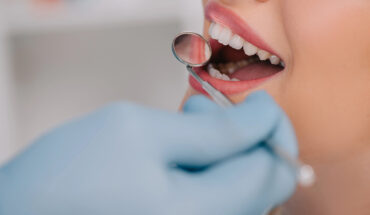Gum disease is one of the most common oral health problems faced by Australians. It starts as a simple issue — gum inflammation, also known as gingivitis — but if not addressed, it can progress to a much more serious condition that affects the bones supporting your teeth. The good news? Gum disease is entirely preventable, and by following a few simple steps, you can keep your gums healthy for life. Here’s everything you need to know about preventing gum disease and maintaining a vibrant, healthy smile.
What is Gum Disease?
Gum disease, or periodontal disease, affects the tissues around your teeth. It starts with gingivitis — a mild form of gum disease that causes redness and swelling of the gums. If left untreated, gingivitis can evolve into periodontitis, where the infection spreads to deeper tissues and may lead to tooth loss.
Common symptoms include:
-
Swollen, red gums
-
Gums that bleed when brushing or flossing
-
Persistent bad breath
-
Receding gums
-
Loose teeth or gaps between teeth
If any of these symptoms sound familiar, don’t wait. Make an appointment with your Sunbury dentist to catch it early and prevent it from getting worse.
Brushing and Flossing: The Basics of Gum Disease Prevention
Prevention starts with basic oral hygiene, and brushing and flossing regularly are your best defense against gum disease. Plaque forms on your teeth throughout the day, and if it’s not removed, it turns into tartar — a hard substance that only your dentist can remove. Keeping plaque in check with regular brushing and flossing is the first step toward a healthier mouth.
Here are some tips for brushing and flossing:
-
Brush at least twice a day: Use fluoride toothpaste to help protect your teeth from decay.
-
Brush gently: Don’t scrub too hard! A soft-bristled toothbrush is ideal, and don’t forget to replace it every few months.
-
Floss daily: Flossing removes plaque and food particles between your teeth and below the gumline, places your toothbrush can’t reach.
For more tips on brushing and flossing techniques, check out our oral health tips guide.
Regular Dental Check-Ups Are a Must
Even with the best at-home care, nothing beats professional care from your dentist. Regular dental check-ups are essential for spotting early signs of gum disease. Your dentist will clean your teeth, remove any plaque or tartar buildup, and check for any gum problems.
When was your last check-up? If it’s been more than six months, it’s time to schedule a visit. During your check-up, your dentist may recommend a deep cleaning if there’s any concern about gum disease, which involves cleaning below the gumline to remove plaque and tartar buildup.
A Healthy Diet Means Healthy Gums
What you eat has a significant impact on the health of your gums. A balanced diet provides essential nutrients that promote strong, healthy gums. Vitamins like vitamin C and minerals like calcium play a crucial role in gum health. Here’s a list of foods that will give your gums a boost:
-
Leafy greens: Packed with vitamin C, they help reduce inflammation and fight gum infection.
-
Dairy products: High in calcium, which helps strengthen teeth and bones.
-
Fish, poultry, and legumes: Rich in protein, these foods support tissue healing and repair.
-
Nuts and seeds: Full of healthy fats and antioxidants, they contribute to overall oral health.
On the flip side, sugary snacks and sodas can fuel plaque buildup, so it’s important to enjoy these in moderation. If you’d like more advice on a diet that supports oral health, visit our nutrition for oral health page.
Say No to Smoking
Smoking is one of the leading causes of gum disease. Not only does it weaken your immune system, making it harder to fight off infections, but it also reduces blood flow to your gums, making them more susceptible to disease. If you’re a smoker, quitting is one of the best things you can do for your oral health.
There are plenty of resources available to help you quit smoking. For more information, visit quit smoking services, where you can find tools, tips, and support to kick the habit for good.
Stress and Your Gums: The Hidden Connection
Did you know that stress can affect your gums? Chronic stress weakens your immune system, making it harder for your body to fight off infections, including those in your gums. It can also cause people to neglect their oral hygiene habits or grind their teeth, both of which increase the risk of gum disease.
To reduce stress, try incorporating relaxation techniques like yoga or meditation into your daily routine. Regular exercise is also a great way to release stress and improve overall well-being.
The Power of Mouthwash
While brushing and flossing are essential, mouthwash can provide an extra layer of protection. Antibacterial mouthwash can help kill bacteria that cause gum disease and freshen your breath. Look for mouthwashes that contain ingredients like chlorhexidine or essential oils (like eucalyptus and tea tree oil) for added benefits.
Keep in mind, mouthwash should never replace brushing or flossing. It’s meant to complement your regular oral care routine.
Be Aware of Medical Conditions
Some health conditions, such as diabetes, can increase your risk of gum disease. Diabetes impairs your body’s ability to fight infections, and people with poorly controlled diabetes are more likely to experience gum problems. If you have diabetes or any other medical condition, make sure to communicate with both your doctor and dentist about how to best manage your oral health.
For more information about the link between medical conditions and oral health, check out our article on oral health and chronic conditions.
Final Thoughts
Preventing gum disease is about more than just brushing your teeth. It’s about committing to a healthy lifestyle, from eating nutritious foods to managing stress and avoiding harmful habits like smoking. With these simple steps, you can protect your gums for life and enjoy a healthy, confident smile.
If you notice any signs of gum disease, don’t wait to see a dentist. Early intervention can prevent long-term damage and keep your smile looking its best. Remember, gum disease prevention starts with you!




